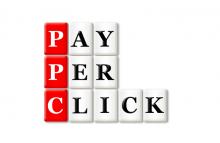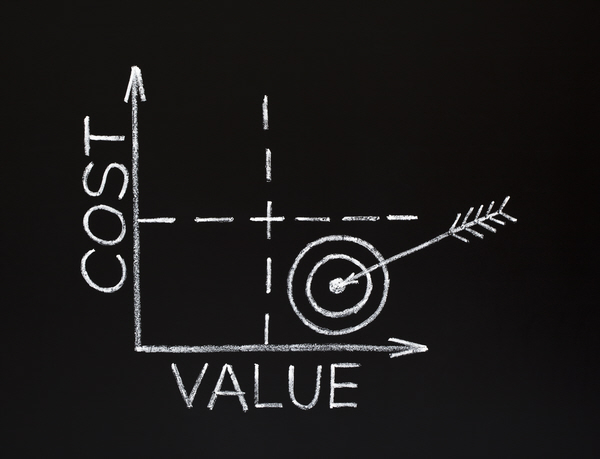Your Web Site Pages Are Your Display Products
[[{"fid":"800","view_mode":"default","fields":{"format":"default","field_file_image_alt_text[und][0][value]":"Products on Display","field_file_image_title_text[und][0][value]":""},"type":"media","attributes":{"alt":"Products on Display","class":"media-element file-default"}}]]
Make Every Page Of Content Worthy Of Your Business
The vast majority of your web sites pages are important because every page of your site has an opportunity to be indexed by the search engines. In the UK this means Google, because it has almost a 90% hold on search activity. In the US it's 61%.
You will greatly increase the likelihood of a page being indexed if you can demonstrate to Google that you have put thought and rigour into your page content. In practice this means publishing a page that is providing unique and engaging content, and enough of it.
If you want to check if an individual page of your site is indexed just type site: followed by the full web page address into the Google search bar e.g. site:http://www.wd4t.com/blog/managing-your-online-representation-easy
If the page is indexed Google will return a result. As a besides, this is a good way to check how Google will show your page when it does serve it up on a search engine results page.
If your page is not indexed it means only one thing, you have failed to impress Google enough for it to consider your page worthy of being included in their index. In short they don't think it's good enough to be seen by their customers.
[[{"fid":"801","view_mode":"default","fields":{"format":"default","field_file_image_alt_text[und][0][value]":"Returned Results for Site Query","field_file_image_title_text[und][0][value]":""},"type":"media","attributes":{"alt":"Returned Results for Site Query","class":"media-element file-default"}}]]
Your Competitors Will Help You
Take a few moments to go and look at every single site page that's listed on the first page of Google search results for a term that's relevant to your business. Don't go any further than the page you reach when you click on each listing. Ask these questions:
- Does it look unloved?
- Does it look unkept?
- Is it missing information you'd expect to see there?
- Does it have an engaging title?
- Are the words well written?
- Do the words make sense?
- Are images relevant to the words?
- Is there a video you can watch?
- Would you go further into the site structure?
You can learn a lot about your competition by looking at their sites. More importantly you can learn a lot about what might be deficient with your site page that you would want to be seen listed with your competitors.
The general standard of the pages you visit will inform you about the standard you need to achieve and exceed, if your budget and time allows.
The Message Comes First
A clear message delivered adequately is infinitely better than a poor message delivered well. Looking at your competitors will help you determine how well you will need to deliver your message, but it's your message that will count.
Rather than dive in and start creating content step back and make sure you are clear about what you are going to be saying and what you will be asking your audience to do. Avoid regurgitating someone elses message, even if you are providing the same product or service as your competitors. Think carefully about what words, images and even video would make a prospect buy from you rather than one of your competitors.
When you are clear about your message you can produce the content, but you can't publish it just yet.
[[{"fid":"802","view_mode":"default","fields":{"format":"default","field_file_image_alt_text[und][0][value]":"Make Message Loud and Clear","field_file_image_title_text[und][0][value]":""},"type":"media","attributes":{"alt":"Make Message Loud and Clear","class":"media-element file-default"}}]]
Your Page is Your Display Product
Even if you are a service business you still need to treat each page of your site as if you are going to place it on a shelf for prospective purchasers to view and touch. If the product you place on a shelf looks shabby you will reduce the chance of it being inspected and purchased. If the product doesn't provide enough detail it's again unlikely to be purchased. I think this is simple common sense and yet the web is full of pages that have clearly been hurredly thrown together.
When you're happy your product looks the best it can be within the constraints of your budget (effort & money) then it's time to move on to the factors that matter to Google.
What You Need To Feed Google
There are no mysteries to what Google pays attention to and uses. If you ignore these factors the chances of your page being indexed are close to zero. If your page is not indexed it will NEVER be served up on a search engine results page (SERP). This represents a lost opportunity.
The following list contains all the elements that make up a web page. Some are not seen by the human eye but they are inpsected by the search engine crawlers.
- URL
- Page Title
- Meta Description
- H1 Tag
- Image file names & attributes
- Word count
There is no point short changing the above so let me explain each one.
URL - The Address of the Your Web Page
What your page address looks like is either helpful or unhelpful. It's helpful if it contains words that have meaning to you and me. If it does it will mean something to a search engine crawler. This is a helpful page address www.wd4t.com/blog/managing-your-online-representation-easy because it gives a good idea about what the topic of the destination page is about.
This is not a helpful URL www.wd4t.com/node/88. This is actually the raw page address for the same page mentioned above, but I certainly don't want to use the raw address. Fortunately our site serves an aliased address that contains meanginful words.
If you have control over your page addressing you should make sure the address makes sense to a human being and that it directly reflects what a human being and a crawler will find when they visit the page.
Page Title - Times Have Changed
Just like the URL the Page Title is important because it is most definitely an element that influences how well a page can rank. The Page Title is what appears in the tab of the browser. Until recently the guide was to create page titles no longer than 69 characters. In April this changed to creating page titles that were no bigger than 512 pixels. In practice this means no more than 55 characters.
What you want to include in your page title are words you want your page to be famous for but at the same time you don't to use the same sequence of words on multiple pages. This can be challenging but it is critically important you avoid duplicate page titles. Google does exclude pages from its index if it feels mutiple pages of a site are too similar. One way it determines this is by looking at Page Titles.
It's fine to have a Page Title that is the same as the visible title at the top of your page. Yes, these are two separate elements. The title you actually see on a page (not in the tab) should be given a H1 tag.
H1 Tag - Think of it as Heading 1, which it is
H1 denotes to a search engine the main title of the content they are crawling. To you and me its the main heading. It should give the reader of the page a very clear idea of what the content of the page is all about. Or it might tweak their interest enough to delve into the page.
An SEO purest will argue that only one piece of content should be given the H1 tag treatment on a page. I haven't seen any convincing evidence that having more than one is harmful.
Meta Description - It's Your Advert
This is one of the most overlooked elements and yet it is one of the most important. This is because it's what Google will serve up if it decides your content is worthy of appearing in search results. The Meta Description no longer has any bearing on how well a page ranks but it does influence what Google will present to searchers.
It needs to be written as an advert, with a call to action. If you don't bother to write a Meta Description Google will decide for you what it will show. If your description is deemed poor by Google it may ignore it and use something it believes is more relevant. This is not a good thing.
A good Meta Description should be no longer than 160 characters. If it is it will be cut off at 160 characters. If it's way longer than 160 characters it may be ignored. It should reference the page content and it should give a reason why a searcher should bother clicking through to your site page.

Image File Names and Attributes
This is all about attention to detail. Search engines can't intepret what an image is about, they simply know it's there. The file name you give to an image helps a search engine determine what the image is about. On top of this the search engines inspect the alt tag and the title tag fields that can be associated with images. These fields provide further opportunities to tell a search engine what they should index a page for.
Avoid being lazy about image file names. Make sure you give images files names that directly relate to the content on the page you are loading them on. It's not a crisis if the odd image is missing alt tags or is poorly named. It is unhelpful if all images are poorly name and alt tags are never present.
Word Count - Less Is Not More
There is a fine balance between having too many words and having too few. Having too many words may put off someone from reading the content. Having too few may result in them leaving your site in search of more detail. What is clear is that Google does not like pages that are light on words. There is a general concensus that 600 words or more is good, but let me qualify this. This means 600 words on a page. If content that might appear in the sidebar or the footer of a page delivers 200 words then your fresh content needs to make up the difference.
What is important is to organise the words in a way that keeps the reader engaged and satisfies Google in terms of word count. A way to do this is to use images to break up the content. Another is to use headings. And another is to use other forms of content, such as video.
Make It Good, Make It Count
In summary, as a web site owner you should regard your site pages like you would products you're placing on display. If your products look unappealing you can't expect people to be interested in them. The same is true for the search engines.
If you want your site pages to be indexed you have to ensure you feed the search engines with what they're looking for from content.
If you want your site pages to be appreciated by visitors you need to make sure they can see that you've put some effort into producing quality content.






